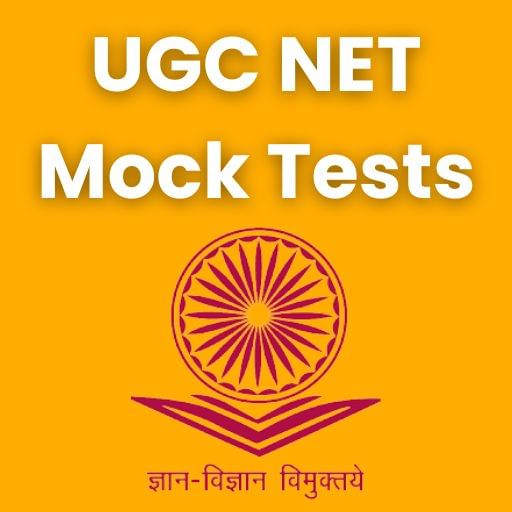Principles & Functions of Management | UGC NET Commerce Preparation Course PDF Download
What is Management?

Management involves the processes of planning, organizing, and controlling activities within a company to achieve its objectives. It encompasses decision-making, goal-setting, resource allocation, and guiding individuals or teams in carrying out specific tasks. Control mechanisms are put in place to monitor progress and ensure that operations are on track.
Effective management is characterized by the prudent use of resources, sound decision-making, and clear communication. It also entails adaptability to changes as necessary.
Principles of Management
Management principles serve as guiding rules for planning, organizing, and controlling work activities. They are crucial for handling materials, people, machinery, processes, finances, and markets. These principles act as beacons that facilitate collaboration and smart goal attainment, enabling managers to make informed decisions, utilize resources efficiently, and lead their teams to success.
14 Principles of Management by Fayol
- Division of Work: Divide a project into tasks and assign them to individuals to improve efficiency and quality.
- Authority and Responsibility: Balance authority and responsibility to ensure individuals have the necessary power to carry out their tasks.
- Unity of Command: Employees should have only one direct manager to avoid conflicts and misunderstandings.
- Unity of Direction: Ensure that all personnel working on the same activity have the same goals at the business and project levels.
- Equity: Treat all employees equally, avoiding preferential treatment or discrimination.
- Order: Maintain an organized workplace and assign tasks to the right people.
- Discipline: Enforce respect for rules and regulations, practicing self-discipline as a manager.
- Initiative: Encourage employees to take the initiative, empowering them to develop and implement their plans.
- Remuneration: Provide fair compensation to employees to promote productivity, loyalty, and value for the organization.
- Stability: Create job security by giving employees time to adjust, reducing employee turnover.
- Scalar Chain: Establish a hierarchy of authority and communication to improve organizational communication.
- Subordination of Individual Interest: Prioritize the organization's interests over individual or group interests.
- Esprit de Corps: Foster a sense of pride, loyalty, and teamwork within the organization.
- Centralization and Decentralization: When making decisions in a group, it's important to find a good balance between centralization and decentralization to ensure everyone gets a say without things getting too messy.
Principles of Management by Taylor
Scientific Study of Work: Taylor promoted a systematic, scientific approach to analyzing and improving work processes. This involved breaking tasks down into their fundamental components and finding the most efficient method for performing them.
Scientific Selection and Training of Workers: He advocated for selecting workers based on scientific principles to ensure the right person was matched to the right job. Taylor also emphasized the importance of systematic training to equip workers with the skills needed for efficient task performance.
Equal Division of Work and Responsibility: Taylor proposed a clear separation of roles between managers and workers. Managers would handle planning and organization, while workers would focus on executing tasks according to the established methods.
Piece-Rate Incentive System: Taylor introduced a piece-rate pay system where workers were compensated based on their output. This was intended to boost productivity by offering higher earnings for increased production.
Functional Foremanship: He also introduced the concept of functional foremanship, which involved splitting the traditional foreman’s role into several specialized positions. Each specialized foreman was responsible for different aspects of the production process, such as planning, training, or quality control.
 |
Test: Principles & Functions of Management
|
Start Test |
Functions of Management

Managing things is crucial in any group or organization to ensure smooth operations and collective goal achievement. Let's delve into the five key functions that managers undertake:
Planning:
- Planning holds a significant role in management as it aids in forward-thinking, decision-making, and problem-solving. It is akin to charting a course for success. During planning, managers establish goals, guidelines, and procedures to facilitate seamless operations. While planning cannot prevent all issues, it equips you to anticipate and devise contingency strategies. Managers play a pivotal role in setting organizational objectives and crafting strategies to attain them.
Organizing:
- Organizing involves task delegation, activity grouping, authority assignment, and resource allocation to execute the devised plan. Once plans are in place, organizing focuses on the necessary actions and resources required for implementation, determining task assignments. It also entails structuring departments or work teams for effective management, ensuring clear communication and reporting. Efficient organization paves the way for streamlined operations.
Staffing:
In the realm of business operations, staffing is a critical managerial responsibility. Managers determine the optimal workforce size required for efficient task completion, contemplating the number of hires and the requisite skills and qualifications.
- Staffing is an ongoing process in a business, not a one-time task. It requires continuous attention from managers because as people move or leave, the staffing needs of the business change accordingly.
- Managers are responsible for determining the number of workers required and the specific skills they should possess, both at the inception of the business and as it progresses.
Directing:
- Directing is akin to being the captain of a team, involving the provision of clear instructions and guiding individuals towards set goals.
- Effective directing encompasses motivating and inspiring team members, ensuring proficient communication, and offering feedback and support to facilitate optimal performance.
Controlling:
- Controlling assists managers in providing appropriate guidance to their team, ensuring that everyone collaborates in alignment with the established plans.
- It enables managers to verify adherence to the set standards, overseeing tasks such as monitoring employee performance, enforcing regulations, task allocation, and company promotion strategies.
- Through controlling, managers assess the progress of activities and make necessary adjustments to ensure alignment with the overarching objectives.
- By utilizing feedback obtained through controlling, managers make informed decisions, modifying plans or making adjustments to maintain operational efficiency and address emerging issues promptly.
Conclusion
The principles and functions of management play a crucial role in achieving success within an organization. They provide a framework for making sound decisions and taking appropriate actions. Think of these principles as a guiding map that helps managers navigate complex situations. Organizing, another vital function, involves creating a coherent structure and assigning tasks to individuals, ensuring smooth collaboration among team members. When effectively combined, the principles and functions of management empower managers to excel in their roles.
|
235 docs|166 tests
|
FAQs on Principles & Functions of Management - UGC NET Commerce Preparation Course
| 1. What is risk classification and management? |  |
| 2. How can organizations assess and classify risks effectively? |  |
| 3. What are some common risk management strategies used by organizations? |  |
| 4. Why is risk management important for businesses and organizations? |  |
| 5. How can organizations create a risk management plan? |  |
































